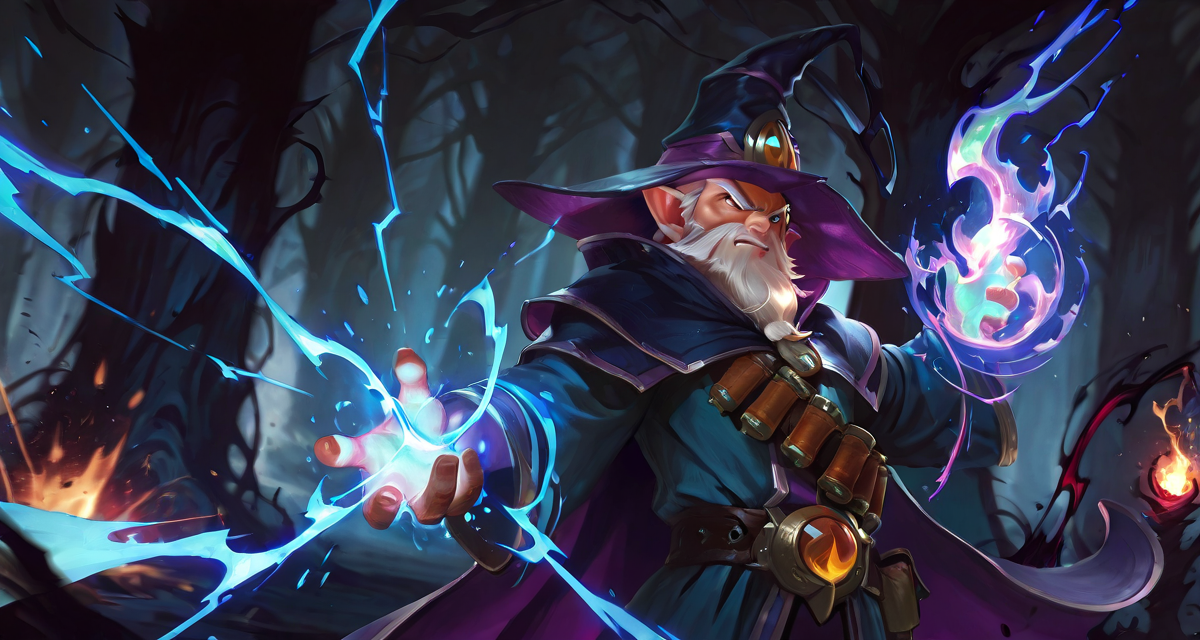He Just Cast Fireball Again?! How to Handle Repetitive Tactics Without Killing Creativity
“By Grabgar’s hammer, if that wizard throws one more fireball into a negotiation, I’m throwin’ him into the fire meself.”
Every table’s got one. The player who’s found their favorite move and clings to it like a bard clings to the one love song they know.
The rogue who always hides and backstabs.
The ranger who won’t stop shootin’ from the same tree.
The cleric who only casts Guiding Bolt like it’s goin’ out of style.
The wizard who answers every problem with Fireball, regardless of context, property damage, or friend proximity.
And at first? It’s fine. Reliable. Even useful.
But by the fifteenth time? It’s a rut. A creativity-killer. And worse, it drags the party’s momentum into a ditch. Players stop thinkin’, stop reactin’ — they just repeat. Like a scroll loop with no end.
So what’s a GM to do? Yellin’ won’t work. Punishment breeds resentment. The trick is to redirect without insultin’. Guide without scoldin’. And reward innovation more than repetition.
Repetition Kills Wonder — And Wonder’s Half the Game
👉 If yer fightin’ boredom more than monsters, GM Wisdom has the grit to wake up yer sessions. And if yer players are stuck in spell spam hell, yell about it over at Mike’s contact scroll. I’ll listen. Then I’ll mock ya gently and give ya the fix.
How to Break the Loop Without Breakin’ the Player
1. Change the Terrain
If they’re always doin’ the same thing, make the place punish it.
“This room is coated in sulfur vapors. Any flame-based spells ignite the whole chamber.”
Now the fireball thrower has to think — or burn.
Same goes for archers, chargers, area casters — shake up the battlefield. Look at The Count of Thorneblight if you want layered danger that pushes players into new tactics.
2. Give Bonus Effects for Creativity
If someone tries somethin’ unusual — clever use of a spell, risky tactic, unexpected flavor — reward it.
+1 on the roll
Free minor effect
Enemy gets rattled, impressed, or distracted
This teaches players: new = exciting = better.
It’s how a weird plan in The Tiefling Who Was Never Really There turned from side arc into major myth. All ‘cause someone didn’t follow the script.
3. Introduce Spell Variants or Twists
Talk with yer caster. Ask:
“What if your fireball sometimes left magical ash, or rebounded off magic walls? Want to explore variants?”
Offer custom tweaks — a new spell, or a flavorful twist they can choose to explore. They’ll feel seen. And you’ve just expanded their toolkit.
You can even use cursed gear like The Dagger That Hates the Sun — it punishes mindless use, rewards wisdom.
4. Let the Enemies Adapt
If the baddies have seen this trick before, they prepare.
“The warband has fire-resistant cloaks.”
“The dungeon beasts scatter when the wizard raises his hand.”
Show that the world remembers. And adjusts. Like any good battlefield.
Don’t punish them. Challenge them.
5. Build Puzzles and Fights That Need New Tools
Not every fight needs to be solved with dice and damage. Build:
Magical barriers that resist brute force
Enemies immune to certain damage types
Situations where talking, sneaking, or positioning wins
Point the party toward The Pale Widow for that kind of encounter. It don’t care how big yer fireball is — it’ll end ya anyway.
Players Repeat The Known — GMs Offer the Unknown
👉 The moment yer table stops experimentin’, the world starts shrinkin’. Use new dangers, smarter enemies, and creative carrots to keep ‘em sharp. Find more mischief in GM Wisdom, or shove yer bored caster into The Pale Widow’s house and see if that don’t fix it.
Scrolls That Break the Loop
FAQ
Q: Isn’t it okay if a player just likes one tactic?
A: Aye, if it’s still fun for everyone. But once the table stops reactin’, it’s time for a change.
Q: Won’t punishing repetitive play feel unfair?
A: It ain’t punishment. It’s evolution. You’re makin’ the world smarter — not meaner.
Q: Should I ban a spell entirely?
A: Only if it’s breakin’ the game. Otherwise, reshape the world so it responds, not ignores.

